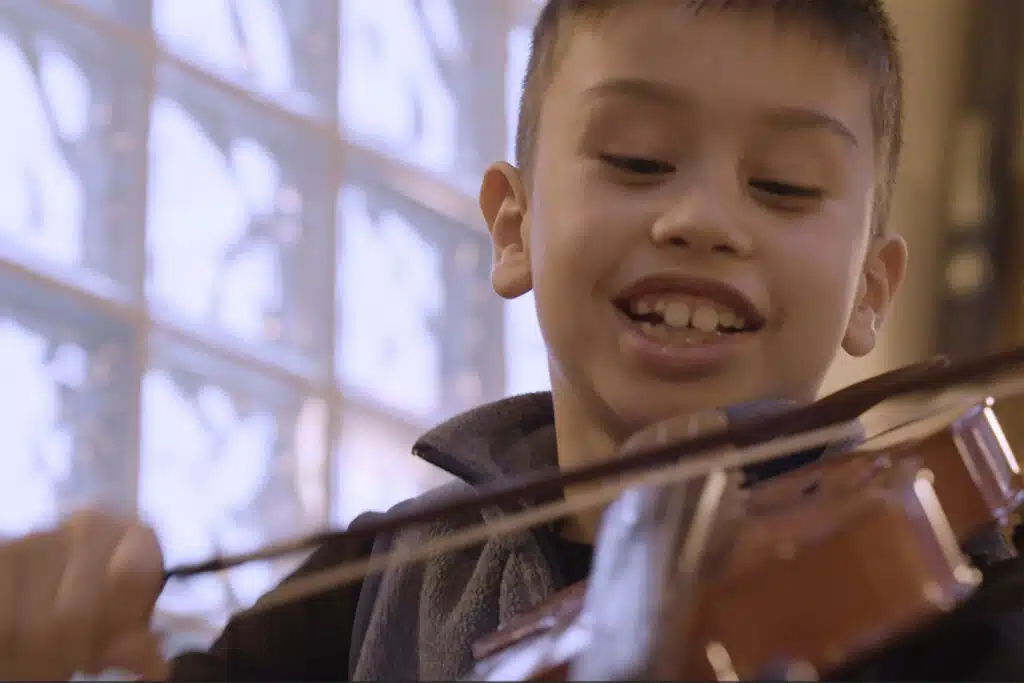Music can be a life-changing tool for children with autism
For some kids, music isn’t just a fun past-time or hobby. It can become a doorway to connection and help stimulate changes in the brain.
Nigel is a curious, sweet nine-year-old who loves geography, navigation and exploring Google Earth. He has also been diagnosed with autism and a communication delay. For his parents, Derick and Josie, it’s been hard to watch their son struggle in school and not connect with many friends.
“I was like, what can I do to try to help him maintain a healthy self esteem and self worth?” says Josie. “It’s harder for him to relate to peers so he just steps away. He loves talking to adults, no problem. But with kids it’s just harder for him to make that connection.”
Through Facebook, Josie found out about a music therapy practice near their North Vancouver home. Nigel tried it and loved it – looking forward to his sessions each Friday. Therapy has helped Nigel in so many ways, including bringing him out of his shell.
“It’s a healthy outlet for him,” says Josie. “I really wanted him to have something that was his own, and he just loves doing it.”
Nigel’s growing musical taste is wide-ranging – including Raffi, Lindsay Monroe, The Cranberries, and Eric Clapton. He’s learned to play some guitar and is branching out into drums as well. Through music therapy, he’s found it easier to process sound. He used to use headphones in busy public places to cope with loud noises; now he’s finding he doesn’t need them as often.
March is Music Therapy Awareness Month, which is a great opportunity to learn how music therapy works. It can be a tool to help improve attention and focus, reduce hyperactivity and strengthen social and communication skills. It works in part because music is structured, which can help a child learn to anticipate, plan, and react.
Listening to music can increase dopamine, which is the neurotransmitter responsible for regulating attention, memory and motivation. Practicing playing in a group or collaborating on writing songs can also help improve listening, taking turns, and picking up on cues.
However, music therapy can cost hundreds of dollars per month – more than Derick and Josie can afford to cover on a regular basis. They researched funding options and discovered that Variety BC funds a range of therapies, including music therapy.
“We’re so grateful,” says Josie. I want to try to give my son everything I possibly can. I want him to be happy and music therapy totally makes him happy. He talks about it all the time.”
